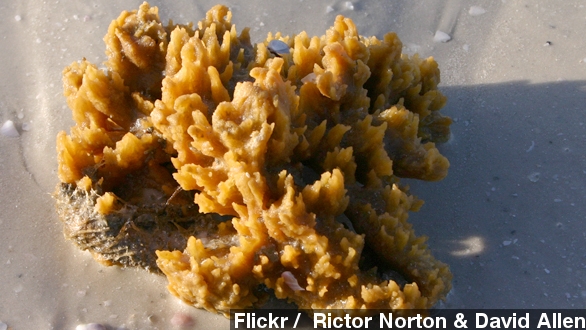It's the age-old question: Which one came first? SpongeBob SquarePants or humans?
Well, without humans, there'd be no SpongeBob, but without that wacky, loveable sponge, there might never have been life on Earth — that's according to researchers from Denmark. Fox News explains — (Via Viacom / "SpongeBob SquarePants")
"Sponges appear to have added oxygen to the deep ocean, creating an environment where more mobile, major oxygen-using animals could have evolved ... such as the first predatory animals with guts that started to eat one another, marking the beginning of a modern marine ecosystem."
It's believed from marine life, that's where land animals started to evolve from. Take that, add in a couple of millions of years later and voila — here we are today.
The study was led by researchers at the University of Exeter and published in the journal Nature Geoscience. They point out during the Neoproterozoic era of about a billion to 542 million years ago, life on Earth really started changing.
Sponges are known as one of the first animals to have evolved, and they also require very little oxygen. That's why scientists think as they evolved, they gave way to more complex life-forms that required more oxygen. (Via BBC)
The University of Exeter reports this new study "contests the long held belief that oxygenation of the atmosphere and oceans was a pre-requisite for the evolution of complex life forms."
As for the chicken and the egg debate? We'll save that for another day.


